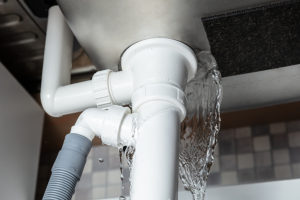 One of the most troubling plumbing emergencies that can happen to a home or a business in Long Island or Suffolk County is a leaking pipe. This might seem like a small issue, but it can mean extensive repairs depending on where it happens. In some cases, it may even mean damaged walls or ceilings.
One of the most troubling plumbing emergencies that can happen to a home or a business in Long Island or Suffolk County is a leaking pipe. This might seem like a small issue, but it can mean extensive repairs depending on where it happens. In some cases, it may even mean damaged walls or ceilings.
But while most people understand the idea of a leaky pipe, few people understand the mechanics behind it. Leaky pipes aren’t random things that can’t be predicted; they have causes. Here are some of the most common reasons why it happens.
A Frozen Pipe Bursts
This is a big culprit in the winter. When water freezes, it expands. If that expanding ice has nowhere to go, it breaks the water pipe that it’s in. When the temperatures rise once more, and water flow is restored, that burst pipe will now leak water.
Fortunately, leaky pipes from a burst due to ice are more predictable to track down. Where pipes are closer to exterior walls, they are more likely to freeze and thus more likely to burst.
Foundation Shift
This is indicative of a bigger problem in a home. The foundation of a building can shift and move. Unfortunately, this usually doesn’t happen for the entire foundation in the same direction. It can gradually warp and even break pipes as a building moves in different directions.
This is because a pipe, while flexible, can’t accommodate dramatic shifts in a foundation. If you notice cracks in your walls or your stairs are no longer level, there’s a chance your water pipes are being affected too.
Corrosion
This is more of an issue for older homes that haven’t yet had plumbing systems modernized. While modern pipes may use PVC or PEX, older pipes used galvanized steel or copper. These are durable materials, but metals are more vulnerable to rust and corrosion.
If enough time passes, and metal pipes can rust, which weakens them structurally and can eventually lead to cracks, breaks, and leaks.
What To Do
If you find your home or business is suffering from a leaky pipe, the first thing you should do is turn off the water supply. This limits the amount of damage the water can do, so a leak in the ceiling, for example, won’t have a widespread stain.
The next thing you should do is get the professionals to come in and fix the issue, and that’s where we can help. Contact us today, and let our experienced team resolve your situation.
